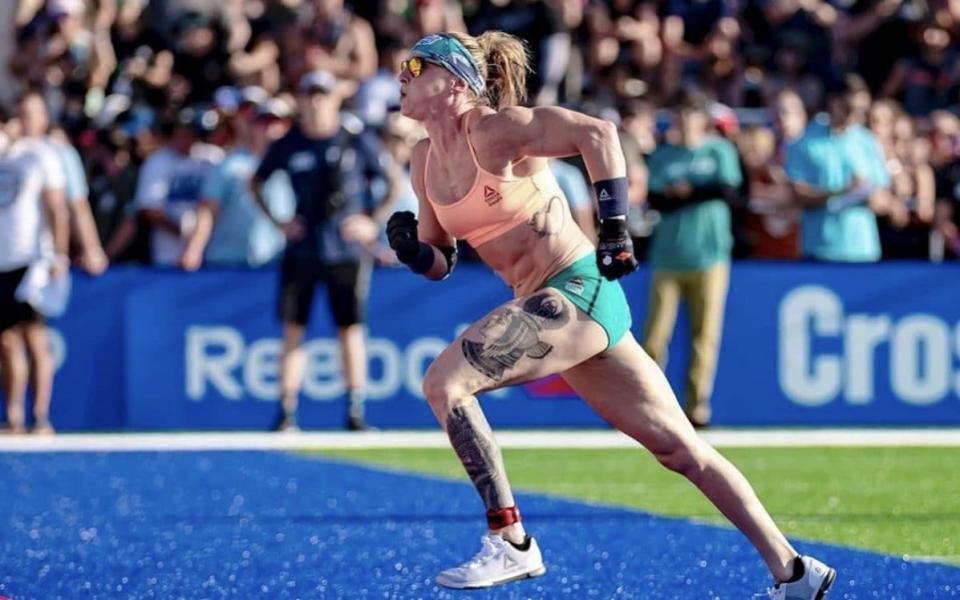Meet the 'fittest woman in Britain' Samantha Briggs who earns a living from her strength


Even being the “fittest” female in Britain and a former world champion does not, it appears, exclude you from criticism.
“You get people who comment on your muscles. They say you look too big and you shouldn’t look like that as a female,” explains Samantha Briggs, days after finishing inside the world’s top 20 at the 2019 CrossFit Games in Madison, in the United States.
The annual event, which started in 2007 with 70 athletes and a prize fund of $500 (£413) and has now grown into a worldwide televised spectacle backed by the biggest sponsors and individual winners cheques reaching $300,000 (£248,000), tests athletes’ strength, endurance, speed, agility, gymnastics, power and overall fitness over four days to crown the “Fittest Man and Woman on Earth”.
It is just one arm of what was originally a fringe fitness method – the high-intensity training programme of CrossFit – which has grown into a worldwide brand.
Briggs, herself, shrugs off any body criticism, adding: “I’m 5ft 7in and I weigh 68 kilograms, I’m not huge.”
But even if she was taller or heavier, Briggs would not mind. She is rightly proud of her muscular physique. “If people have an issue with it, then it’s their hang-up,” she says.
As one of the world’s leading full time CrossFit athletes – and champion in 2013 – it is her strength which earns her a living. And in a society which continues to produce a steady flow of negative commentary on fat-shaming, skinny-shaming or sexualising of women, Briggs believes it is about celebrating what the human body can do.
“If we can inspire the younger generation to live a healthier lifestyle and be a role model for them being active, as opposed to some of your reality television stars, where their focus is on being as thin as possible, which is not necessarily being as healthy as possible, then it’s a good direction.”
A post shared by Samantha Briggs (@bicepslikebriggs) on Aug 5, 2019 at 12:37pm PDT
It was in 2009 that Briggs discovered CrossFit as an accompaniment to her amateur triathlon pursuits. A year later, she was competing at her first Games, finishing 19th and then fourth 12 months later.
She originally combined CrossFit with working for the West Yorkshire Fire and Rescue Service, but when injury put her out for a year in 2012, she decided to take a six-month work sabbatical to concentrate on getting fit for the 2013 Games.
The gamble paid off. And with prize money, sponsorship and other opportunities forthcoming, not to mention wanting to stay at the top of her game, Briggs resigned from the fire service.
In five of her seven Games appearances, the 37-year-old, known as The Engine, has placed inside the top 10 and this year, after finishing 18th off the back of elbow surgery last year, was awarded the 2019 Spirit of the Games Award in recognition of her contribution to the sport in general.

“When I first started, the more athletic look wasn’t quite the norm. But people are a lot more positive towards it now. Having the Olympics here in 2012 definitely shifted the focus, more people started looking into sport, especially for women,” adds Briggs, who runs training camps for people of all abilities.
“A lot of people start CrossFit to try to get fitter and to look a certain way. But you see a big shift. Rather than them saying I want to be a size 10, it becomes I want to lift ‘X’ kilos, or run ‘such’ a time. The focus becomes on what the body can do, as opposed to what you look like.

“The side effects of trying to lift this weight, or run this fast, is you do end up losing weight and looking more athletic. But you start to appreciate your body more for what it can do.”
And those negative comments? “Sometimes you’ll get internet warriors. But for every negative person, there’s at least five or 10 positive comments.”
One size doesn't fit all - is it time to stop judging people's ability by their appearance? Tell us what you think in the comments section or send us an email to yourstory@telegraph.co.uk for the chance to be featured in an article.

